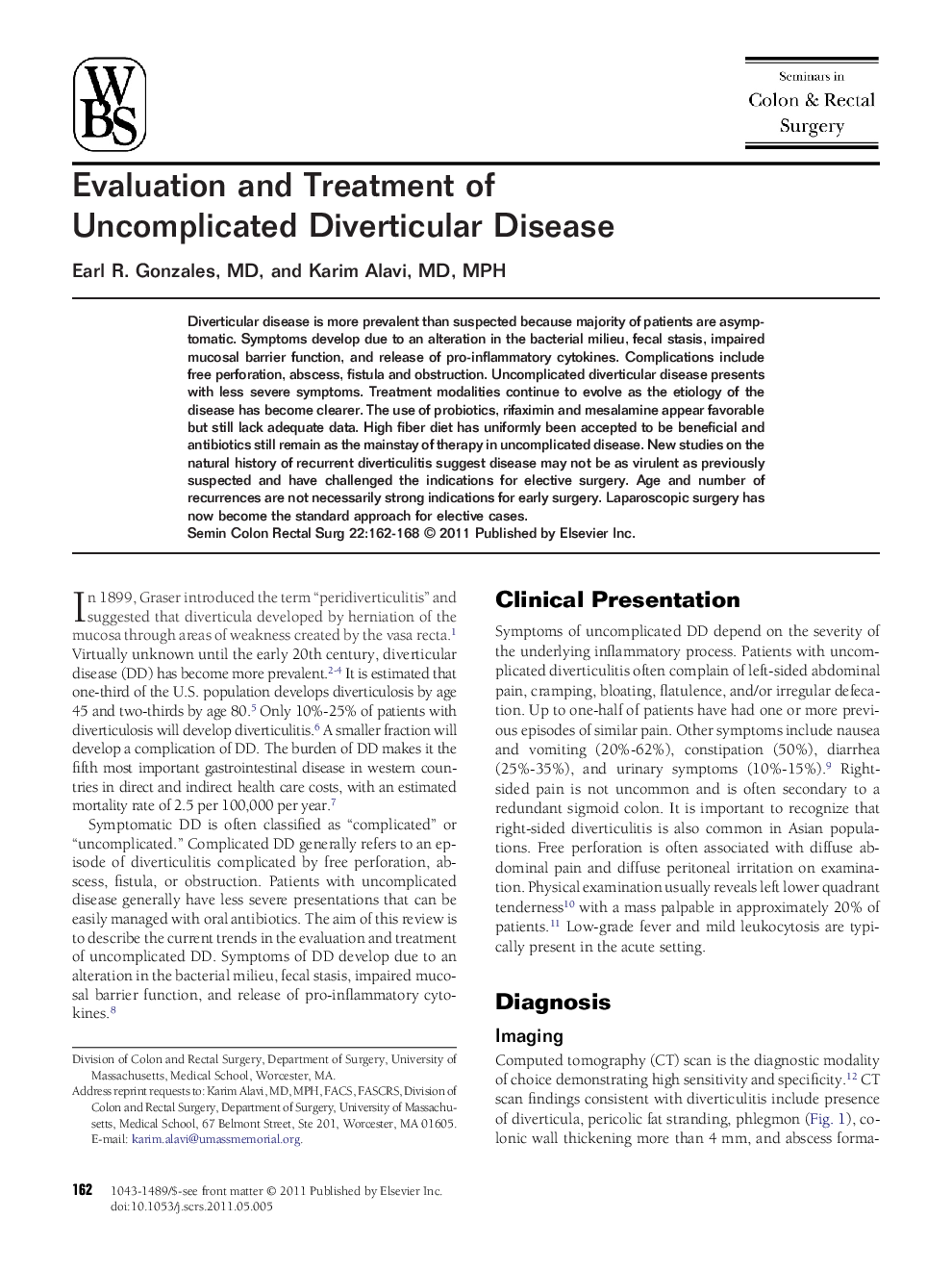| Article ID | Journal | Published Year | Pages | File Type |
|---|---|---|---|---|
| 3319456 | Seminars in Colon and Rectal Surgery | 2011 | 7 Pages |
Abstract
Diverticular disease is more prevalent than suspected because majority of patients are asymptomatic. Symptoms develop due to an alteration in the bacterial milieu, fecal stasis, impaired mucosal barrier function, and release of pro-inflammatory cytokines. Complications include free perforation, abscess, fistula and obstruction. Uncomplicated diverticular disease presents with less severe symptoms. Treatment modalities continue to evolve as the etiology of the disease has become clearer. The use of probiotics, rifaximin and mesalamine appear favorable but still lack adequate data. High fiber diet has uniformly been accepted to be beneficial and antibiotics still remain as the mainstay of therapy in uncomplicated disease. New studies on the natural history of recurrent diverticulitis suggest disease may not be as virulent as previously suspected and have challenged the indications for elective surgery. Age and number of recurrences are not necessarily strong indications for early surgery. Laparoscopic surgery has now become the standard approach for elective cases.
Related Topics
Health Sciences
Medicine and Dentistry
Gastroenterology
Authors
Earl R. MD, Karim MD, MPH,
